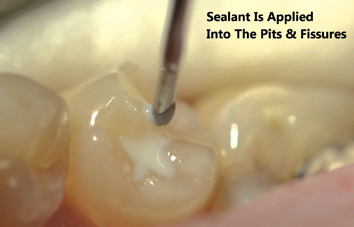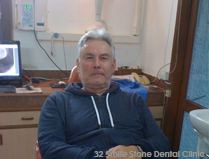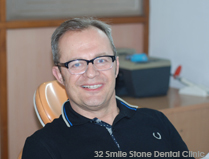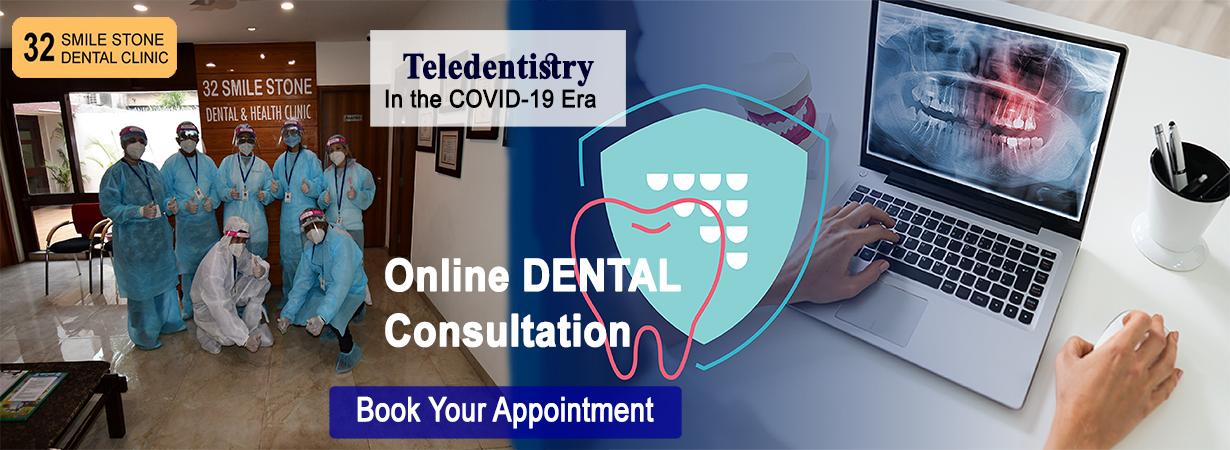Preventive Dentistry
What is Preventive Dentistry?
Preventive dentistry is the practice of caring for your teeth to keep them healthy. It helps to avoid cavities, gum disease, enamel wear, bad breath and keeps you in a healthy oral condition. It includes simple home care procedures to take care of your teeth and gums: brushing, flossing, mouth-rinses, eating a healthy diet and visiting your dentist every 6 months to help avoid dental disease.
Why is it required?
Preventive dentistry prevents people from developing dental problems later on. Cavities, gingivitis (bleeding from gums), enamel loss, and periodontitis (bone loss) can be avoided or mitigated with proper dental care. It may help prevent the incidence of higher cost treatments such as periodontal surgery, root canals, extractions and fillings.
Who benefits from Preventive Treatment?
Everyone benefits from preventive dentistry. Children in particular benefit because it allows their newly developing adult teeth to erupt strong and healthy. Aging adults benefit from preventive dentistry because it helps them to retain their natural teeth. Oral health is connected to body health as a whole. This is because the mouth is an entry point for breeding harmful bacteria. Maintaining a clean mouth benefits overall health.
How does it work?
Home Care
The most important prevention technique is brushing and flossing at least twice a day (or after every meal) to remove dental plaque; a white film like coating that forms on your teeth. If not removed, plaque can build-up and produce dental calculus (tartar). This is a hardened, sticky substance with acid producing bacteria that cause tooth decay and leads to gum disease.
Fluoride Application

Fluoride strengthens teeth and prevents tooth decay by making the entire tooth surface more resistant to acid attacks from the bacteria. Fluoride promotes remineralization which aids in repairing early decay before a cavity forms in the tooth.
Professionally administered topical fluorides such as foams, gels or varnishes are applied by a dentist and left on for a few minutes, usually during a cleaning treatment. For patients with a high risk of cavities, the dentist may prescribe a special gel or toothpaste for daily home use.
Plaque Disclosing Tablets

Dental plaque is almost invisible to the naked eye. Plaque disclosing tablets contain a non-toxic vegetable dye (erythrocine) that makes it easy to see. Many dental professionals use disclosing products during dental visits to teach children how to clean their mouths better. Dentists then prescribe these tablets for use at home. They're particularly effective for youngsters who haven't established the best brushing and flossing habits.
This is how to use disclosing tablets at home
» Explain to the child the purpose of the tablets.
» The child chews the tablet thoroughly, then rinses with water and spits out the excess.
» Parent and the child observe where plaque is visible on the teeth in the mirror.
» The stained plaque is then brushed and flossed away from the teeth.
» Watch the plaque disappear!
» The child chews the tablet thoroughly, then rinses with water and spits out the excess.
» Parent and the child observe where plaque is visible on the teeth in the mirror.
» The stained plaque is then brushed and flossed away from the teeth.
» Watch the plaque disappear!
Diet
A balanced diet is a dental health essential. Foods with sugars and carbohydrates feed the bacteria that produce dental plaque, while calcium poor diets increase your chances of developing gum (periodontal) disease and jaw deterioration.
Regular dental visits
Since most dental conditions are painless at first, if you don't regularly visit your dentist, you may not be aware of dental problems until they cause significant damage. For best results, schedule your regular dental check-ups every six months; more often if you're at higher risk for oral diseases.
Dental Cleanings
Dental cleaning (prophylaxis) is recommended every six months to remove dental plaque, calculus and stains.
Dental Sealants

Sealants are thin, clear, composite coatings placed on the chewing surfaces of back permanent teeth (1st and 2nd molars) to protect your child from tooth decay. The sealants fill up the small grooves and fissures in your teeth which are hard to clean. Applying sealants takes only a few minutes; is painless, safe, does not involve drilling and are non-dissolvable in the mouth. They last for many years and should be regularly checked by dentists on recall visits.
Avoid Smoking and Drinking
Smoking, chewing tobacco and alcohol consumption can negatively affect your oral health. Apart from causing dry mouth, tooth discoloration and plaque build-up, it can lead to oral cancer. Smoking causes gum disease and even tooth loss.
Oral Cancer Screening
Most people with oral cancer use tobacco in some form. The risk increases with the span of the habit and the amount of tobacco used.
Specifically, pipe smoking increases the risk for cancer of the lip and the soft palate. People who use chewing tobacco or snuff are more likely to develop cancer of the gums, cheek and lips. Living with a smoker or working in a smoking environment can cause second hand or passive smoking. Your dentist will perform a mouth, head and neck screening as part of each exam. He will also check for any unusual or abnormal areas, sores or bumps in your mouth.
Oral Health Management
Consistent dental care for chronic oral diseases or conditions is essential for arresting or reversing their harmful effects.
Hence patient education and motivation is necessary to ensure a lifetime of dental health. By following the above simple preventive dental treatments and home care suggestions, one can always be assured of stress free oral health. Visit our dental clinic in New Delhi for a complete examination.
Enquiry Form
Testimonials

Thank you for a painless dental experience. I can recommend your skill to anyone that requires dentistry......

Thank you so much for an efficient and professional treatment. Got a dental implant placed in her office.....
Featured Services
Ceramic Veneers
Composite (white) Fillings
Scaling and Deep Cleaning
Dental Implants
Digital X-Rays
Root Canal Treatment
Braces
Night Gaurd
Sports Gaurd
Preventive Dentistry
Dental Jewellery
1 Hour Teeth Whitening
Home Bleaching
Flexible Partial Dentures
Complete Dentures
Clear Aligners
Tooth Extraction (Wisdom)
Smile Designing
Cosmetic Gum Treatment
Inlays and Onlays
Dental Bridge
Dental Crowns
Teledentistry














